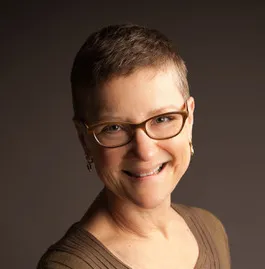Where Power Lies: Putting Lived Experience at the Heart of Decision-Making

'There’s really no such thing as the “voiceless”. There are only the deliberately silenced, or the preferably unheard.’ – Arundhati Roy
Right from the outset of my quarter-century career in the voluntary sector, I’ve been troubled by the frequent disconnect between those at the leadership levels of charities and those that their organisations serve. My very first role in the sector was to create what were called ‘seeing is believing’ events to take prospective supporters to visit Prince’s Trust projects supporting young people.
At one of these visits one of the project participants, a man in his twenties, took me to one side, ‘Before I came on this programme, I wouldn’t have known how to speak to someone like you’ he told me. He meant this as a compliment about the programme’s effectiveness in building his confidence and networking skills – useful for his future career. But his words have stayed with me ever since.
He and his peers were the reason the charity existed and should’ve been front and centre of decision-making. Not made to feel somehow inferior to a junior member of staff not much older than them.
This disconnect wasn’t even considered to be a problem, seemingly, whether at The Prince’s Trust or countless other organisations as they sought the most captain-like captains of industry to sit on their boards.
The voluntary sector’s purpose
The distance between decision-making at the top of a charity and the experiences of the very people it’s designed to serve seems to me to be a fundamental problem and raises the following questions.
- How can decision-making remain anchored in the core purpose of the organisation?
- What are the key motivations?
- What are the right priorities?
- Who gets to decide?
More recently, the charity sector has grappled with scandals about fundraising practices, safeguarding failures and institutional racism. These are issues which cut right to the heart of our fundamental purpose, and I’ve found myself wondering what the charity sector is even for, if our practices and workplaces are actively doing harm in the name of doing good.
All these questions had led me to want to explore what’s going on in charities today in greater depth. I wanted to find out how people with personal experience of the issues are being involved in the solutions.
How organisations engage with lived experience
I wanted to find out how organisations can engage people with lived experience better, more authentically and share some best practice. As I conducted my research, however, I soon found that the problem isn’t just that people with lived experience aren’t at the top table, but that the ways charities engage with them can cause harm.
We do this in a range of ways. We encourage them to repeatedly share their stories of pain. We reduce them and their professional skills to their stories. We ask them to share their time for free, even making them feel bad for claiming expenses.
At the heart of all of this – both the issues and the possible solutions – is power. The knowledge people have needs to be treated and valued as expertise, not a deficit. I believe charities and funders should work to understand where power is held within their organisations and seek to share it – particularly with those who they are set up to serve. If we can manage to do this, the most important aspects of our mission will remain at the heart of our work.
Where power lies: Five key lessons from the research
The report drew out the following key ideas for organisations to take away.
- Think carefully about how people with lived experience are engaged and what they’re getting in return for this engagement.
- Make sure people are helped to connect their personal experiences with wider systemic change.
- Avoid rewriting people’s words or speaking for them.
- Beware of retraumatising people – don’t simply encourage them to tell and retell their stories of pain.
- Make sure there are support mechanisms in place for the staff responsible for hearing traumatic stories.
As I heard during my research, if we don’t embed principles whereby those with lived experience have an active voice in decision-making as well as redefining the ways charities engage with them, ‘The people who have been the most invisible, will probably continue to be more invisible’ and that can’t be right.
You can find out more about this research by reading the full report Where power lies: How lived experience is engaged in voluntary sector governance and decision-making
This blog was originally posted on NCVO which champions the voluntary sector and volunteering because they’re essential for a better society. They do this by connecting, representing and supporting voluntary organisations. To find out more, visit their website here.
If it’s your first time reading this newsletter, find out more here.
If you enjoy this newsletter and get something from reading it, tell your friends! 📣
If you like ChangeOut, you can buy me a coffee! ☕️
All past issues of the newsletter are here and available to all subscribers.
Subscribe to get them hand-delivered by me to you every week.
ChangeOut - Leadership . Purpose . Impact Newsletter
Join the newsletter to receive the latest updates in your inbox.
